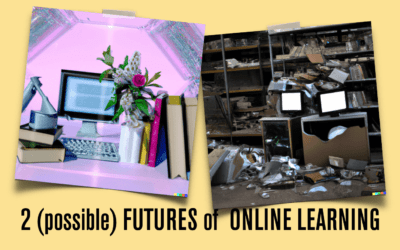Matt Koehler and I rarely (if ever) explicitly mention the TPACK framework in our teaching. Of course the framework guides all that we do in class – but we have never really felt the need to throw another acronym (or series of acronyms such as TK, CK, TPK and so on) at our students. We attempt to embody the TPACK framework in all that we do as teachers but we do so implicitly.
I had blogged about this previously in another context (see Nerdview OR being stuck in our worldview).
That said, I know there are teacher preparation courses out there (in other universities) that explicitly follow or teach according to the TPACK framework. I know that the technology integration course at Iowa State (the one that was described in one of our TPACK survey papers, see the third citation/abstract on this page) is one. Recently (through the magic of Google Alert) I have come to know of two more. The first, about which I blogged about recently, is at Brigham Young University and is taught by Dr. Charles Graham. The other, is taught by Dr. Grace Ward at University of Maine at Farmington. You can find the course at BYU here and the one at UM, Farmington here. Interestingly, the course at University of Maine uses the TPACK handbook as a primary text (something I argue against in this post).
I would be interested in finding out about other courses that utilize the TPACK framework. If you know of any (or are involved in teaching one) let me know. Thanks in advance.


Thanks Bob for the info. We may include this in the next TPACK newsletter that should be going out later this semester.
I also understand the “neglect” of PCK and CK you speak of… I guess there are some problems endemic to all programs!
At the University of Luxembourg (Europe) —http://www.uni.lu— we are currently teaching an Educational Technology course in the Bachelor in Educational Sciences program (http://bsce.uni.lu/ — mainly primary school teacher training) and we introduced the TPACK model to our students in order to make them more aware of the fact that Educational Technology is supposed to teach them something about learning & teaching in general and not about IT or New Technology. And explicitly using the TPACK model helps us to make them better understand that their research projects in Educational Technology have to go beyond TK, beyond TPK in order to attain the level of TPCK… and it nicely connects our EdTech course with the rest of the program, which puts a high emphasis on PK – and has come to somewhat “neglect” PCK and CK (but that’s another story…)
Thanks Charles for your thoughts on this. It seems to me that this would be a great discussion topic on the TPACK Google group – if not for anything else but to develop a list of courses that are using the TPACK framework explicitly. This would provide us with multiple models that I think we can all learn from.
I remember hearing Matt mention something about never explicitly mentioning TPACK in his courses in one of his presentations at SITE09.
I can see arguments for both doing it and not doing it. In fact, we have debated about that among instructors here at BYU.
I guess ultimately I believe that novice teachers need models to help them begin to organize their own knowledge creation. Models or frameworks also provide a common vocabulary that facilitates communication around a particular topic.
I would be interested in hearing what frameworks or principles other instructors use to help their students begin to develop the kind of knowledge represented in the TPACK framework.
Prior to our explorations with TPACK we used a general content-independent approach (a TPK-like approach) that attempted to give novice students a way to think about and analyze cases of technology integration using four general principles (see Principles of Effective Technology Integration below). I would be interested in hearing what principles others use in their teaching and how they organize the principles if they don’t explicitly use the TPACK framework as an organizing structure.
———————————————————
Principles of Effective Technology Integration
1. Student Use of Technology: Effective technology integration typically involves students (as opposed to just the teacher) in actively using the technology.
2. Technology Use is Integral: Effective technology integration is integral not peripheral to the learning activity.
3. Focus on Learning Task: Effective technology integration focuses on the learning task and not the technology.
4. Added Value: Effective technology integration facilitates learning activities that would be more difficult or impossible without the technology.
———————————————————
One of the outstanding questions about the TPACK model is whether it is a model that will be useful for practitioners or one that is primarily useful for researchers looking at practitioners.
For us the jury is still out on this question . . . but we are exploring the use of the TPACK model as a way to introduce and emphasize elements that we feel are important for our novice teachers to learn. We are also trying to better understand how the framework might be used to help scaffold their reflections on project work they do in the class and their design rationales (I think we have a long way to go on this still).
This always reminds me the old story of cetipede whose movement becomes immobilized when she was asked the question “so..what is your 39th leg doing when your 13 is up?”. I think making TPACK that explicit in our teaching might cause an alienation from the realities and even create a fear on preservice teachers who would think that this could be very complicated and something they would never achieve. I would do research on the ways making TPACK intuitive embedded in contexts, stories and scenarios.